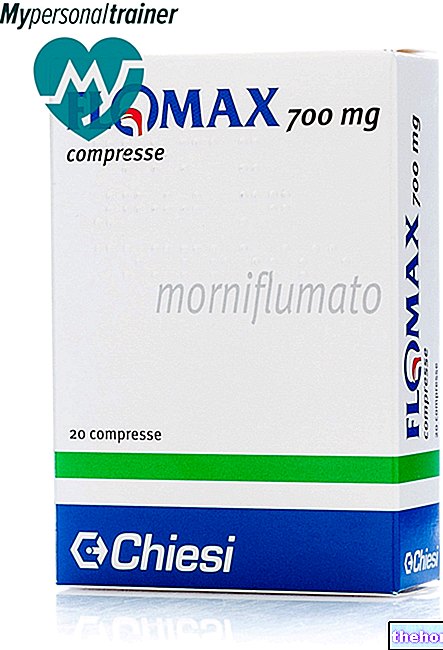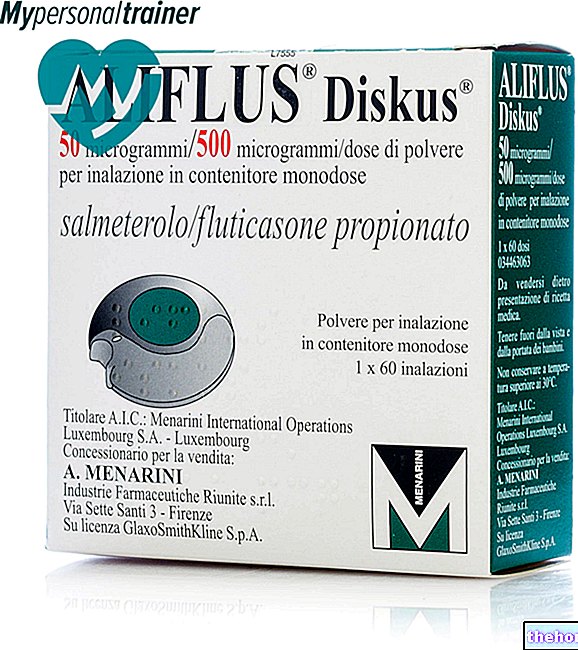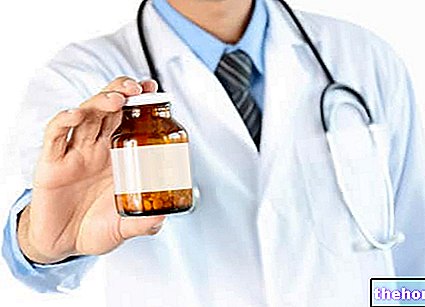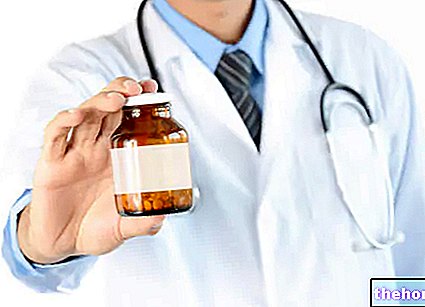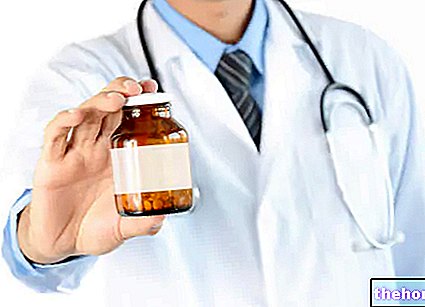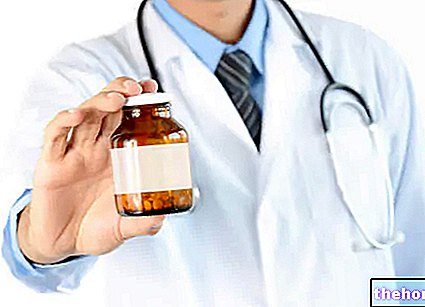Active ingredients: Acetylsalicylic acid
Cardioaspirin 100 mg gastro-resistant tablets
Why is Cardioaspirin used? What is it for?
Cardioaspirin is an antithrombotic, which is a medicine that prevents the formation of blood clots (thrombi) in the blood vessels.
Cardioaspirin is used in:
- Prevention of major athero-thrombotic events:
- after myocardial infarction (heart attack);
- after stroke (sudden interruption of blood flow to the brain) or transient ischemic attacks (TIA) (temporary interruption or reduction of blood flow to the brain);
- in patients with unstable angina pectoris (attacks that occur with pain and tightness in the chest at the sternum, at rest);
- in patients with chronic stable angina pectoris (or angina of exertion, manifested by severe chest pain and tightness in the region behind the breastbone, usually following exertion).
- Prevention of re-occlusion of aorto-coronary by-pass (the surgical technique that allows to restore the correct flow of blood to the heart) and in "percutaneous transluminal coronary angioplasty (PTCA) (the non-surgical intervention technique that allows to restore the correct blood supply to the heart).
- Prevention of cardiovascular events in patients with overt atheromatous disease (disease that leads to stiffening and deposition of fat inside the arteries), in patients undergoing blood dialysis and in the prevention of thrombosis during extracorporeal circulation.
- Prevention of cardiovascular events in high-risk patients.
Contraindications When Cardioaspirin should not be used
Do not take Cardioaspirin
- if you are allergic to acetylsalicylic acid, salicylates or any of the other ingredients of this medicine
- if you suffer from mastocytosis (a blood cancer), because the use of acetylsalicylic acid can cause you severe allergic reactions (including circulatory shock with flushing, hypotension, tachycardia and vomiting);
- if you have suffered in the past from asthma induced by the administration of salicylates or substances with similar activity, especially non-steroidal anti-inflammatory drugs (NSAIDs);
- if you suffer from gastroduodenal ulcer (ulcer of the stomach or the first part of the intestine);
- if you suffer from bleeding diathesis (bleeding tendency);
- if you suffer from severe kidney (reduced kidney function) or hepatic (liver) or cardiac (heart) failure;
- if you are being treated concomitantly with methotrexate at doses of 15 mg / week or more (see "Other medicines and Cardioaspirin");
- if you are in the last trimester of pregnancy (see "Pregnancy and breastfeeding").
Precautions for use What you need to know before taking Cardioaspirin
Talk to your doctor or pharmacist before taking Cardioaspirin:
- If you are allergic to analgesic (pain reliever), anti-inflammatory or antirheumatic medicines, and / or have other allergies. Stop using Cardioaspirin at the first signs of a skin reaction, mucosal lesions and other signs of allergy;
- If you have suffered from gastrointestinal ulcers, or gastrointestinal bleeding;
- If you are being treated concomitantly with anticoagulants (medicines to thin the blood / prevent blood clots) (see "Other medicines and Cardioaspirin");
- If you have kidney or heart problems, for example renal vascular disease (changes in the blood vessels of the kidneys), congestive heart failure, volume depletion (reduced blood volume), major surgery, sepsis (severe generalized infection) or major bleeding, as the "acetylsalicylic acid may further increase the risk of impaired kidney function and acute renal failure (rapid decrease in kidney function);
- If you suffer from severe glucose-6-phosphate dehydrogenase deficiency (G6PD, an enzyme whose absence, genetically determined, leads to a disease characterized by reduced survival of red blood cells, called favism). Acetylsalicylic acid can induce haemolysis (destruction of red blood cells) or haemolytic anemia;
- If you have liver problems
- If you are taking ibuprofen as a pain reliever (see "Other medicines and Cardioaspirin");
- If you suffer from asthma, hay fever, nasal polyposis (small growths along the lining of the nose or inside the sinuses, called polyps) or chronic respiratory disease. These conditions increase the likelihood that acetylsalicylic acid can cause bronchospasm (contraction of the muscles in the airways that obstruct the passage of air) and induce asthma attacks or other allergic reactions. These reactions can also occur in patients who have allergic reactions. (e.g. skin reactions, itching, hives (small spots on the skin and itching)) to other substances;
- If you are over 70 years of age, especially if you are also following other therapies;
- If you have to undergo even a minor surgery, such as tooth extraction, since, due to the inhibitory effect on platelet aggregation, which persists for several days after administration, acetylsalicylic acid can increase the tendency to bleed during and after surgery;
- If you have ever had gout, as acetylsalicylic acid in low doses reduces the excretion of uric acid and this can sometimes cause gout attacks in predisposed patients.
Children and adolescents
Cardioaspirin is not indicated for use in the pediatric population. Medicines containing acetylsalicylic acid should not be used in children and adolescents under the age of 16 with viral infections (such as influenza and chicken pox) whether or not they have a fever. Salicylic acid can cause Reye's Syndrome, a very rare but life-threatening disease that requires immediate medical attention. Persistent vomiting in patients with these diseases can be a sign of Reye's Syndrome.
Interactions Which drugs or foods can modify the effect of Cardioaspirin
Tell your doctor or pharmacist if you are taking, have recently taken or might take any other medicines.
The treatment effect may be changed if Cardioaspirin is taken concomitantly with other medicines such as:
- anticoagulants (to thin the blood / prevent blood clots, eg warfarin);
- anti-rejection medicines (to prevent transplant rejection, eg cyclosporine, tacrolimus);
- antihypertensives (to treat high blood pressure, for example diuretics and ACE inhibitors);
- pain relievers and anti-inflammatories (for pain and inflammation, eg steroids, NSAIDs);
- gout medicines (probenecid);
- medicines to treat cancer and rheumatoid arthritis (methotrexate).
Do not take Cardioaspirin together with methotrexate at doses greater than or equal to 15 mg / week, as it increases the toxicity of methotrexate in the blood.
Only take Cardioaspirin together with the following medicines under close medical supervision:
- Methotrexate at doses below 15 mg / week;
- Ibuprofen: treatment with ibuprofen in patients with increased cardiovascular risk can limit the cardioprotective effects of acetylsalicylic acid;
- Anticoagulants, thrombolytics / other antiplatelet agents: increased risk of bleeding;
- Other non-steroidal anti-inflammatory drugs containing salicylates in high doses: increased risk of gastrointestinal ulcers and bleeding; - Selective serotonin re-uptake inhibitors (medicines used in depression): increased risk of upper gastrointestinal bleeding;
- Ciclosporin and other immunosuppressive drugs: increased renal toxicity. Pay special attention if you are an elderly person.
- Digoxin (medicine used in heart failure): increase in the concentration of digoxin in the blood;
- Antidiabetics, for example insulin, sulfonylureas: increased hypoglycemic effect for high doses of acetylsalicylic acid;
- Diuretics in combination with high-dose acetylsalicylic acid;
- Systemic glucocorticoids (cortisone), with the exception of hydrocortisone used as replacement therapy in Addison's disease (insufficiency of the adrenal gland);
- Angiotensin Converting Enzyme Inhibitors (ACE inhibitors) in combination with high dose acetylsalicylic acid: reduced kidney filtration and reduced antihypertensive effect;
- Other antihypertensive agents (beta blockers): decreased antihypertensive action;
- Valproic acid (medicine used against epilepsy): increased toxicity of valproic acid;
- Phenytoin (medicine used against epilepsy): increased effect of phenytoin;
- Uricosurics (medicines that increase the elimination of uric acid) such as benzbromarone, probenecid: decreased uricosuric effect.
Cardioaspirin with alcohol
Alcohol intake with Cardioaspirin causes increased damage to the gastrointestinal mucosa and prolonged bleeding time.
Warnings It is important to know that:
Pregnancy and breastfeeding
If you are pregnant or breast-feeding, think you may be pregnant or are planning to have a baby, ask your doctor for advice before taking this medicine.
Pregnancy
Inhibition of prostaglandin synthesis may adversely affect pregnancy and / or embryo / fetal development. Do not take Cardioaspirin during the third trimester of pregnancy (see "Do not take Cardioaspirin"). During the first and second trimester of pregnancy, take this medicine only when clearly needed and on the advice of your doctor If you are planning to become pregnant, take medicines containing acetylsalicylic acid for the shortest possible time and the dose as low as possible.
Feeding time
Salicylates and some of their derivatives pass into breast milk in small quantities. Since no undesirable effects have been observed in the infant following occasional use, discontinuation of breastfeeding is not usually necessary. However, in case of regular use or high dosages, the possibility of early weaning should be considered.
Driving and using machines
Cardioaspirin does not affect the ability to drive or use machines
Dosage and method of use How to use Cardioaspirin: Dosage
Always take this medicine exactly as your doctor or pharmacist has told you. If in doubt, consult your doctor or pharmacist.
The recommended dose is: 1 tablet per day in a single administration.
Take this medicine with a large amount of liquid (½ - 1 glass of water) before meals.
Prevention of cardiovascular events in high-risk patients should be carried out with the dosage of 100 mg (1 tablet).
Do not take Cardioaspirin at higher doses without express prescription from your doctor.
Use in children and adolescents
Cardioaspirin is not indicated for children and adolescents under the age of 16 (see "Children and adolescents").
Overdose What to do if you have taken too much Cardioaspirin
If you take more Cardioaspirin than you should
In case of accidental ingestion of an overdose of Cardioaspirin, notify your doctor immediately or go to the nearest hospital.
Salicylate toxicity (a dosage higher than 100 mg / kg / day for 2 consecutive days can induce toxicity) may be the consequence of a "chronic (long-term) intake of excessive doses, or of acute overdose, potentially dangerous for the life, which also includes accidental ingestion in children.
Mild / moderate overdose symptoms may include: rapid breathing, sweating, nausea, vomiting, headache, dizziness.
Symptoms of moderate / severe overdose may include: fever, respiratory failure, asphyxia, pulmonary edema, arrhythmias (abnormal heart beat), hypotension (low blood pressure), cardiac arrest (cessation of heartbeat), dehydration, oliguria (decreased urine) up to renal failure (reduced kidney function), altered sugar metabolism, ketosis ("acetone"), tinnitus (ringing or wheezing in the ear), deafness, gastrointestinal bleeding, gastric ulcer, impaired blood clotting , encephalopathy (brain pain), cerebral edema (swelling of the brain tissue) and depression of the central nervous system, with manifestations ranging from lethargy (profound sleepiness) and confusion to coma and convulsions.
If you have any further questions on the use of this medicine, ask your doctor or pharmacist.
Side Effects What are the side effects of Cardioaspirin
Like all medicines, this medicine can cause side effects, although not everybody gets them.
The most common side effects are gastrointestinal disturbances which may or may not be associated with bleeding and may occur with any dose of acetylsalicylic acid and in patients with or without predictive symptoms and with or without a history of serious gastrointestinal events.
Effects on the blood
- hypoprothrombinemia (prothrombin deficiency) (occurs at high doses),
- anemia,
- haemolysis (destruction of red blood cells) and haemolytic anemia in patients with severe glucose-6-phosphate dehydrogenase (G6PD) deficiency (see "What you need to know before you take Cardioaspirin"),
- haemorrhagic syndromes such as: epistaxis (nosebleeds), bleeding from the gums, bleeding from the urinary and genital tract, purpura (reddish spots on the skin), etc.) with increased bleeding time. This action persists for 4-8 days later l "discontinuation of treatment with acetylsalicylic acid.
Effects on the nervous system
At high or prolonged doses, the following may appear:
- sweating,
- headache,
- confusion,
- cerebral hemorrhage.
Effects on the ear and the labyrinth
At high or prolonged doses, the following may appear:
- dizziness,
- tinnitus (ringing / ringing in the ear),
- deafness.
In these cases, stop the treatment immediately.
Effects on the respiratory system
- rhinitis (runny nose),
- paroxysmal bronchospasm (contraction of the muscles of the airways),
- severe dyspnea (breathlessness),
- non-cardiogenic pulmonary edema during chronic use of the drug and in the context of an allergic reaction to acetylsalicylic acid.
Effects on the gastrointestinal system
- gastrointestinal bleeding,
- melena (black stools, picee),
- haematemesis (vomiting of blood or "coffee ground" material),
- abdominal pain,
- nausea,
- dyspepsia (indigestion),
- He retched,
- gastric ulcer,
- duodenal ulcer.
Effects on the upper gastrointestinal tract:
- esophagitis (inflammation of the gullet),
- erosive duodenitis (inflammation of the first section of the intestine),
- erosive gastritis,
- esophageal ulcer,
- perforations.
Effects on the lower gastrointestinal tract
- ulcer of the small (jejunum and ileum) and large (colon and rectum) intestine,
- colitis,
- intestinal perforations.
Effects on the liver
- liver toxicity,
- increased liver enzymes,
- liver damage, mainly at the cellular level.
Effects on the skin
Commonly the following have been reported:
- hives (itching and small spots on the skin),
- rash,
- angioedema (swelling of the skin of the face and mucous membranes).
- Bullous reactions have been reported rarely, such as:
- Stevens-Johnson syndrome and Lyell syndrome (toxic epidermal necrolysis) (two serious skin reactions, potentially fatal),
- purpura (reddish spots on the skin),
- erythema nodosum (disease characterized by red nodules under the skin, located in the legs and feet, more rarely in the forearms),
- erythema multiforme (inflammation of the skin manifesting as target-shaped reddish patches or lesions).
Effects on the kidneys
High or prolonged doses can cause:
- acute kidney failure (rapid decrease in kidney function),
- acute interstitial nephritis (inflammation of the kidneys).
Systemic pathologies
- Reye's syndrome (in patients under the age of 16), an acute, potentially fatal disease affecting the brain and liver that almost exclusively affects children.
- anaphylactic / anaphylactoid reactions (severe allergic / allergic-like reactions) in patients with a history of allergy to acetylsalicylic acid and / or other non-steroidal anti-inflammatory medicines; this can also happen in patients who have not previously shown allergy to these medicines.
Effects on pregnancy
- delay in childbirth.
Reporting of side effects
If you get any side effects, talk to your doctor or pharmacist. This includes any possible side effects not listed in this leaflet. You can also report side effects directly via the national reporting system at http://www.aifa.gov.it/content/segnalazioni-reazioni-avverse. By reporting side effects you can help provide more information on the safety of this medicine.
Expiry and Retention
Keep this medicine out of the sight and reach of children.
Do not use this medicine after the expiry date which is stated on the carton and blister after "expiry". The expiry date refers to the last day of that month.
The expiry date refers to the product in intact packaging, correctly stored.
Store below 30 ° C.
Do not throw any medicines via wastewater or household waste. Ask your pharmacist how to throw away medicines you no longer use. This will help protect the environment.
What Cardioaspirin contains
- The active ingredient is acetylsalicylic acid. One tablet contains 100 mg of acetylsalicylic acid
- The other ingredients are: cellulose powder, maize starch, methacrylic acid copolymers, sodium lauryl sulfate, polysorbate 80, talc, triethyl citrate.
Description of what Cardioaspirin looks like and contents of the pack
The contents of the pack are 30, 60 or 90 tablets.
Source Package Leaflet: AIFA (Italian Medicines Agency). Content published in January 2016. The information present may not be up-to-date.
To have access to the most up-to-date version, it is advisable to access the AIFA (Italian Medicines Agency) website. Disclaimer and useful information.

